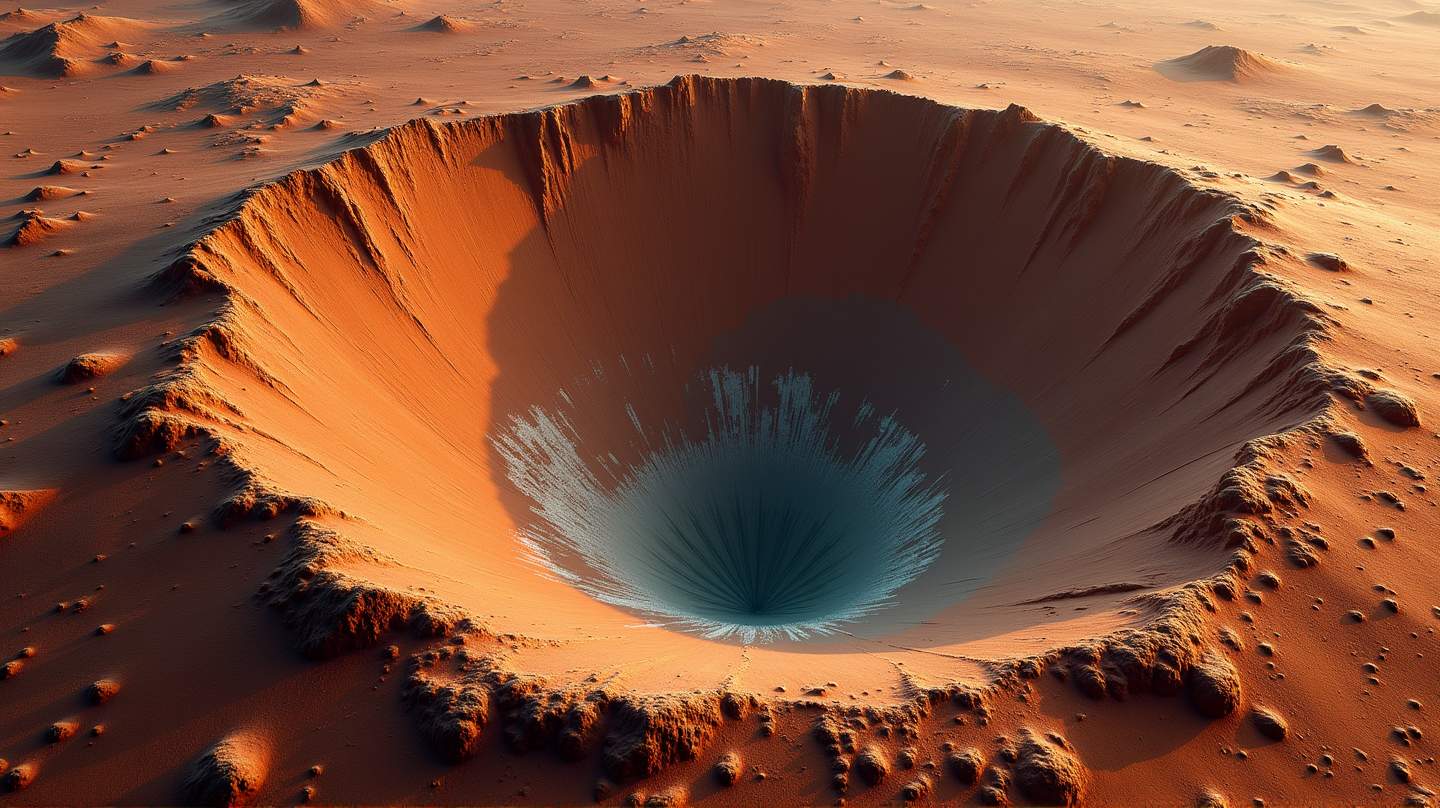Unveiling Mars' Past: Ice Age Cycles Revealed in Craters
Scientists uncover evidence of ancient ice age cycles on Mars from crater data, offering insights into the planet’s climatic history.

A team of scientists has delved into the mid-latitude craters on Mars to uncover the secrets of its climatic past. By analyzing images from the Context Camera and High-Resolution Imaging Science Experiment, they unveiled the remnants of ancient ice ages etched into the Martian surface. This remarkable research, recently published in Geology, paints a vivid picture of the Red Planet’s complex climate history.
Tracing the Icy Paths of Mars’ History
The study focused on discerning the patterns within Martian craters where ice deposits could signify repetitive cycles of warming and cooling. Researchers found evidence suggesting several ice ages occurred between approximately 640 and 98 million years ago. These shifts in climate were largely attributed to changes in Mars’ axial tilt, which influenced the distribution and preservation of ice.
The “Time Capsules” of Martian Ice
“These icy ‘time capsules’ not only reveal how Mars lost its water but also mark places where future explorers might tap into hidden ice resources,” explained Dr. Trishit Ruj, lead author and associate professor at Okayama University’s Institute for Planetary Materials. The gradual decrease in ice deposits over time depicts a shrinking environment, perhaps preserving signs of ancient life.
A Once Watery World
Billions of years ago, Mars was not the dry desolate landscape we see today. It boasted liquid water, replenished by volcanic activity and a potentially thicker atmosphere. This research posits that as Mars cooled internally, its magnetic field weakened, leading to atmospheric loss and freezing of surface water.
Future Explorations and Discoveries
The implications of understanding Mars’ climate extend beyond mere curiosity. They could be pivotal for future manned missions and explorations, allowing us to learn from patterns of planetary evolution and climate change. According to Labroots, these insights could profoundly influence the strategies for sustainable human presence on Mars.
The mysteries of Mars continue to beckon scientists, promising a future teeming with discoveries and adventures on this enigmatic planet. As always, in the spirit of discovery, keep looking up and doing science!

